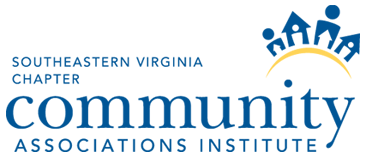Fannie Mae and Freddie Mac: New Lender Requirements Take Effect
In July, Fannie Mae and Freddie Mac released updates to project eligibility standards for condominiums and housing cooperatives.
Fannie Mae and Freddie Mac support around 70% of the mortgage market, according to the National Association of Realtors. Most conventional loans offered by private lenders end up being backed or purchased by the two companies. Project standards are specific requirements designed to verify that each common interest community with more than five attached units qualifies for mortgage lending availability. Fannie Mae and Freddie Mac purchase loans from mortgage lenders, increasing their capital and allowing them to provide mortgages to more homebuyers.
The two government-sponsored enterprises began developing—and released temporary guidelines—after the Champlain Towers South condominium collapse in June 2021. It is critically important for condominiums and housing cooperative to have access to loans that will meet Fannie Mae and Freddie Mac qualifications. CAI continues to provide specific feedback regarding the requirements, which officially go into effect Sept. 18.
Community association boards and managers will likely see changes in lender questionnaires and requests from lenders for additional documentation, including:
-
Insurance policies
-
Budgets
-
Financial reports
-
Documentation regarding special assessments
-
Documentation about litigation or alternative dispute resolution
-
Building inspection reports
If the association does not provide this information to lenders, the project may be deemed ineligible, and put on an ineligible list. This could be devastating for a condominium or housing cooperative association.
In addition, based on the information a community provides, it will likely be deemed ineligible if:
-
The project needs critical repairs.
-
There is a current evacuation order due to unsafe conditions.
-
There are unfunded repairs totaling more than $10,000 per unit.
-
The property insurance coverage is not full replacement value and doesn’t include all the coverage as required. (Note: Cash value replacement is unacceptable.)
-
The budget doesn’t have adequate funding for insurance deductibles, at least 10% of the budget set aside for reserves, or if more than 15% of income comes from rental or leasing of commercial parking facilities.
-
More than 15% of owners are more than 60 days delinquent in paying their assessments.
-
Commercial or nonresidential space accounts for more than 35% of the total above and below grade square footage.
A reserve study and funding schedule also are now an important part of the requirements. Communities must have an inventory of major components, a financial analysis and evaluation of current reserve fund adequacy, and a proposed annual funding plan. The reserve study or an update must be completed every three years and be prepared by an independent expert.
Additionally, the reserve study must meet or exceed requirements set forth in any applicable state statutes. It also must comment favorably on the project’s age, estimated remaining life, structural integrity, and the replacement of major components.
Building inspection reports, insurance requirements, and pending litigation also come into play.
Read more about the new lending requirements on CAI’s Advocacy blog.
